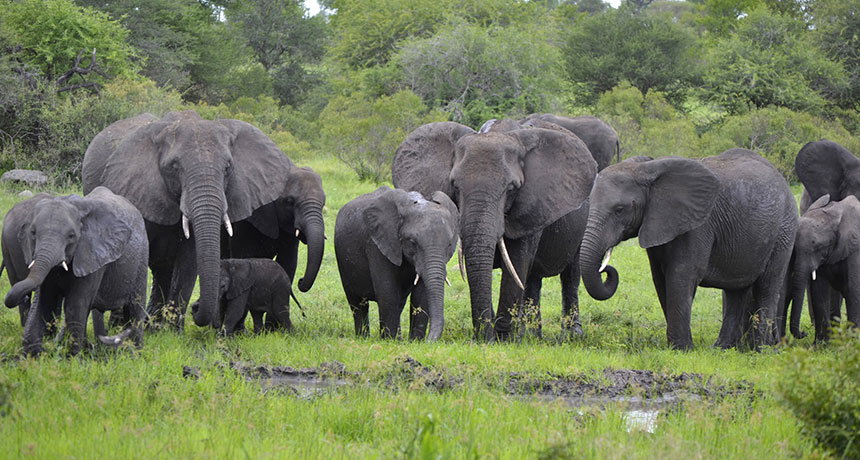Elephants’ cancer-protection secret may be in the genes
The pachyderms’ low disease rates linked to high dose of tumor blockers

LONG LIVING Elephants’ long life spans may stem from an abundance of cancer-fighting genes.
Vaughan Leiberum/Flickr (CC BY 2.0)








